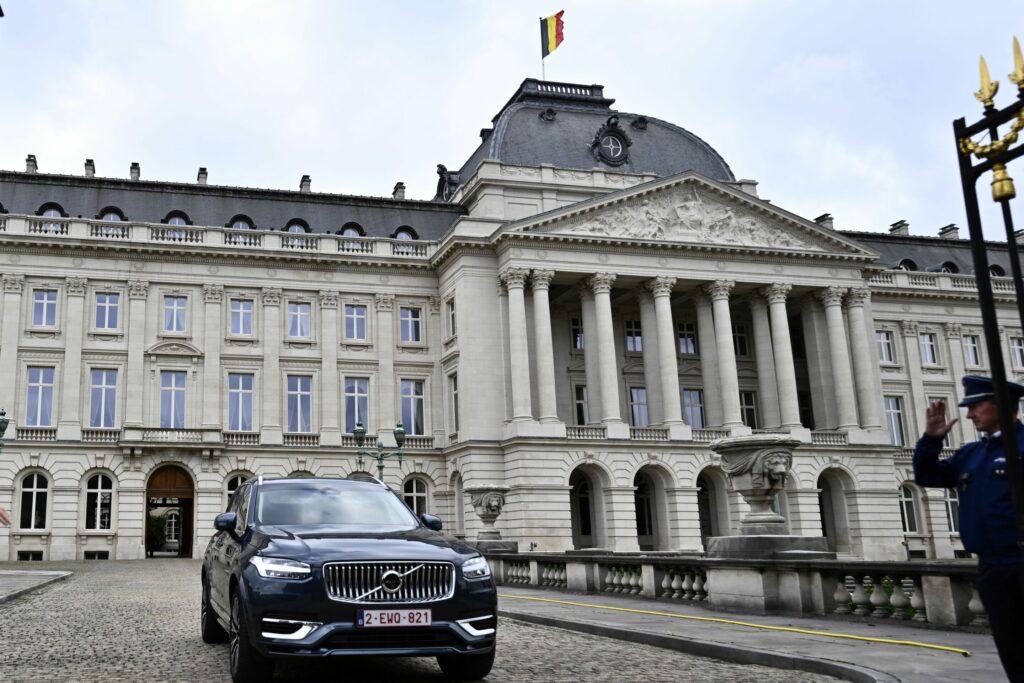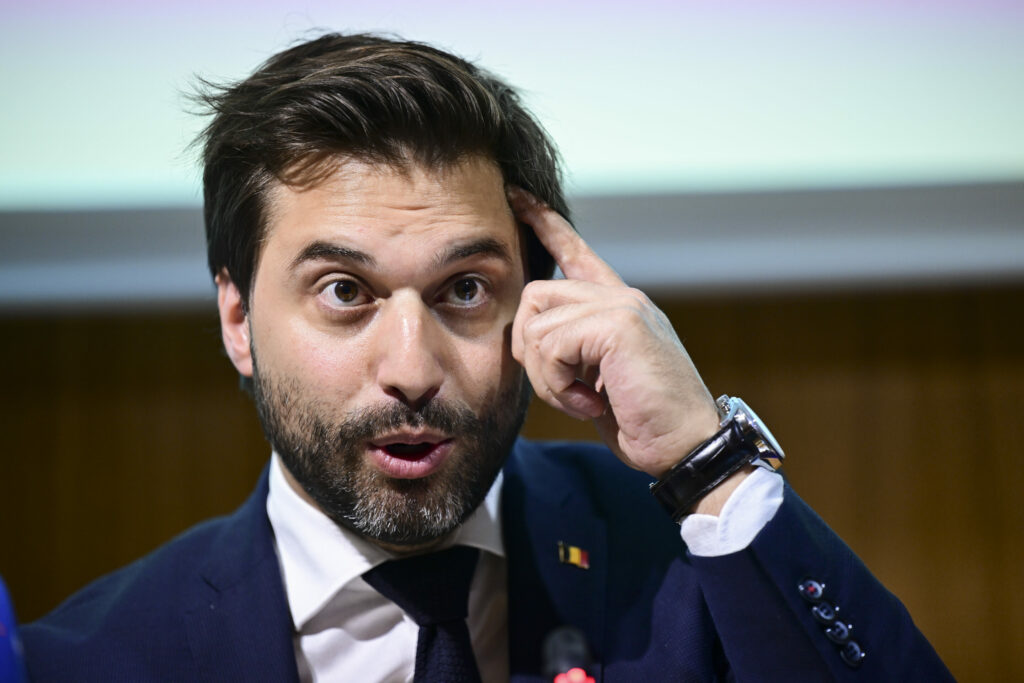How have Federal Government formation talks progressed since the 9 June elections?
✔ N-VA leader Bart De Wever has visited the King 14 times since June
✔ Tensions surrounding the controversial capital gains tax continue
✔ The only left-leaning party Vooruit left the negotiating table in November amid growing frustration
New year, new Government? The bust-ups and compromises defining federal talks

2024 is drawing to a close and Belgium still does not have a new Federal Government. The June election results should have made it relatively easy to find an agreement but 205 days later, the formation process is still continuing.
Just days after the elections, political experts were hopeful that the formation would go smoothly. Fears that the far-right Vlaams Belang party would take so many seats that it would be even harder to maintain the cordon sanitaire – it took nearly 500 days to settle a government after the 2019 elections – did not come to pass.
Instead, analysts entertained the idea that a government agreement could be found in a matter of months – possibly even "before the end of the summer," Dave Sinardet, professor of political science (VUB), told The Brussels Times at the time.
Considering the election results, he pointed out that there was only one "reasonably obvious coalition" to work with at the federal level: rightwing N-VA, liberal MR, centrist Les Engagés, Christian Democrat CD&V and socialist Vooruit. This coalition was nicknamed 'Arizona' by the Belgian press.
Still, Sinardet stressed that "surprises are always possible" as forming a government in a country as uniquely complicated on the political level as Belgium is "never a walk in the park."
A bumpy ride
Now at the end of the year, this prediction turned out to be correct. On Saturday 21 December, the current formation became the third-longest in Belgian history: after 494 days in 2020 and the absolute record of 541 days in 2010 – still a world record.
While the party leaders – and Belgian King Philippe – still believe in the 'Arizona' formula (partly because there are no viable alternatives), the negotiations have gone anything but smoothly over the past six months.
Bart De Wever (N-VA), who is in charge of the negotiations in his role as formator, has visited the King 14 times since June to report on the (lack of) progress. De Wever even offered his resignation at the end of August.
His position as leader of the talks was briefly taken over by Les Engagés leader Maxime Prévot, whose task as mediator was to bring all parties' positions closer together again after a conflict over the capital gains tax. In practice, he mainly bought time to calm things down before passing the baton back to De Wever.

Les Engagés' leader and 'mediator' Maxime Prévot on his way to meet with the King. Credit: Belga/Benoit Doppagne
However, Prévot also introduced a new working method. De Wever's controversial "super-note" (a document including his envisaged reforms of the labour market, taxation and pensions) would be put on hold – so other issues could be discussed first.
This would allow progress to be made while the tensions surrounding the capital gains tax could subside. It's an approach that has worked relatively well, as working groups on different topics (such as health, climate, defence, mobility and migration, for example) held productive meetings and managed to find several principle agreements.
While campaigning for the municipal elections put the federal formation talks on the back burner in the first half of October, the five party leaders continued the working groups as Prévot proposed, while also negotiating the broader lines in full plenary sessions.
No budget plan
But in early November negotiations stalled once again as Vooruit left the negotiating table, arguing that the proposals leaned too much to the right. As the only left-leaning party in an otherwise centre-right coalition, they were frustrated that a greater burden was not put on the most wealthy in the effort to stabilise public finances.
More than a week later, the party rejoined talks after accepting De Wever's ultimate proposal, which Vooruit said "finally contained openings" for a greater contribution to be made by the biggest earners. In the meantime, hopes of reaching an agreement on Belgium's budget for 2025 before the end of the year were quietly abandoned.
Since then, the five parties have remained mostly discreet about their discussions until news of a fight between MR leader Georges-Louis Bouchez and outgoing Finance Minister Vincent Van Peteghem (CD&V) made headlines just before Christmas.

MR leader Georges-Louis Bouchez. Credit: Belga / Laurie Dieffembacq
After a two-day festive break, the hostilities had dissipated somewhat and the atmosphere at the new meetings was described as "serene and constructive." The parties were all given a week to review De Wever's latest socio-economic proposals and pass on comments.
This may cause trouble again however, as Vooruit allegedly submitted 500 amendments on Thursday evening, while CD&V also sent over "several dozen" comments, La Libre reports. Other reports call these numbers "greatly exaggerated."
Whatever the case, there clearly is much more to be decided before the five parties agree on a programme for the next government. But in recent days, signs of a breakthrough have emerged, first with Bouchez expressing his optimism for a deal by 9 January, and later a more cautious timeframe set for the end of January.
What could possibly go wrong?
